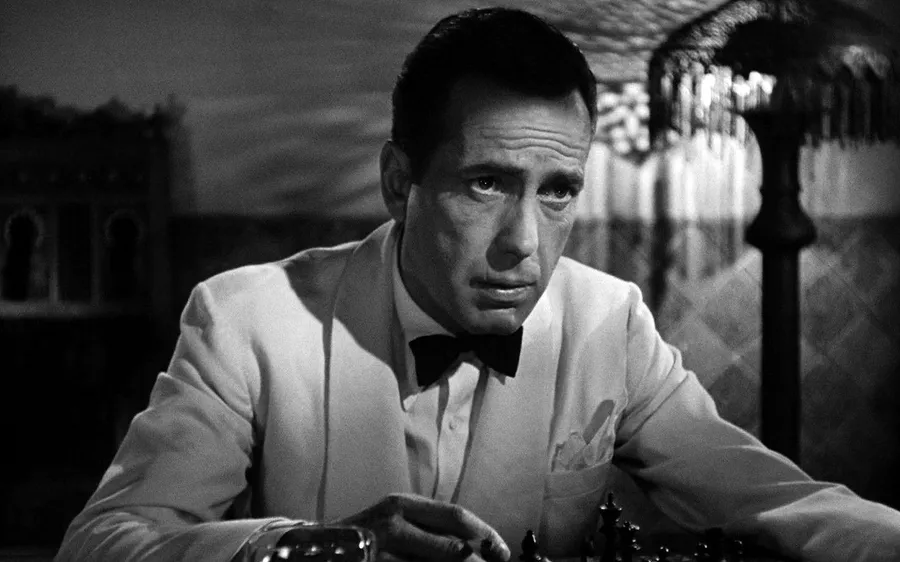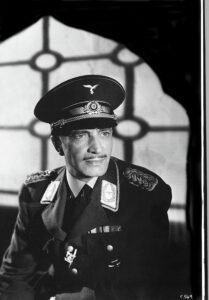- I used to think the problems of the world were none of my business, but Casablanca has a way of changing a man.
- Once, I only cared about my bar and my own skin, but now, I see there’s a greater fight worth joining.
- In the beginning, I was just a cynical expat, but sometimes, fate has other plans for us.
- I never saw myself as a hero, but when the time came, I couldn’t turn my back on what was right.
- Transformation comes when we least expect it—one moment I was running a bar, the next I was fighting for freedom.
- Ilsa taught me that true love often demands the greatest sacrifices.
- Our love was a beautiful tragedy, destined to be remembered but never fulfilled.
- The night we met again in Casablanca, I knew we were bound by more than just memories.
- Loving Ilsa meant letting her go, and in that sacrifice, I found my true purpose.
- In another world, another time, our love could have been more than just a fleeting memory.
- Neutrality is a comfortable lie; sometimes, resistance is the only truth worth living.
- For years, I stayed out of the fray, but the war has a way of pulling everyone in.
- Choosing a side wasn’t easy, but when tyranny calls, silence is complicity.
- I struggled with taking a stand, but in the end, I realized some fights choose you.
- Remaining neutral in a world on fire is like standing still in quicksand.
- Here’s looking at you, kid’—a simple phrase, yet it carries the weight of a thousand memories.
- In those few words, I captured all the love, loss, and longing of our time together.
- It’s more than just a quote; it’s a promise that even in parting, we’ll never truly be apart.
- Every time I said it, I meant ‘I love you’ in ways words alone could never convey.
- Here’s looking at you, kid’—a toast to the past, the present, and the what-might-have-beens.
- My café was a refuge for the lost souls of Casablanca, a place where hope and despair mingled over drinks.
- Rick’s Café Américain was more than a bar; it was a crossroads of fate and destiny.
- Within those walls, alliances were forged, secrets were traded, and futures were decided.
- The café stood as a symbol of neutrality in a world divided by war, but even neutrality has its limits.
- Every night at Rick’s was a play with a different cast, but the stakes were always life and death.
- In times of war, a man’s true character is revealed by the choices he makes when no one’s watching.
- I learned that even in chaos, a sense of right and wrong can guide you through the darkest nights.
- War blurs the lines, but a strong moral compass helps navigate through the fog.
- My actions in Casablanca were driven by a simple truth: doing what’s right is rarely easy, but always necessary.
- In a world gone mad, holding on to one’s ethics is both a challenge and a salvation.
- Louis and I had our differences, but in the end, we understood the value of loyalty.
- Our friendship was forged in the fires of conflict, tempered by mutual respect and necessity.
- Louis knew the game better than anyone, and together, we played it to our advantage.
- In Louis, I found an ally who understood the complexities of survival and integrity.
- Our bond was unexpected, but in the end, it proved to be unbreakable.
- Every decision I made in Casablanca was influenced by the ghosts of my past.
- My past with Ilsa was a constant reminder that love and loss are often intertwined.
- The lessons I learned in Paris shaped the man I became in Casablanca.
- My history of fighting for lost causes prepared me for the ultimate fight in Casablanca.
- The shadows of my past guided my steps, even when the path was uncertain.
- Those letters of transit were more than paper; they were tickets to freedom in a world of imprisonment.
- With those letters, I held the power to change destinies and alter the course of lives.
- In a city like Casablanca, the letters of transit symbolized hope and escape from oppression.
- The true value of the letters lay in their promise of a new beginning, far from the reach of tyranny.
- Freedom, in the form of ink and parchment, became the most coveted prize in a world at war.
- Rick Blaine became a symbol of resistance and resilience, an enduring figure in cinematic history.
- My story in Casablanca left an indelible mark on how we view love, sacrifice, and heroism.
- Through the lens of ‘Casablanca,’ my character showed that even the hardest hearts can find redemption.
- The legacy of Rick Blaine is a testament to the power of film to capture the complexities of the human spirit.
- In every frame of ‘Casablanca,’ the spirit of Rick Blaine lives on, inspiring generations to come.
The Transformation of Rick Blaine: From Cynical Expat to Reluctant Hero
Love and Sacrifice: Rick Blaine and Ilsa Lund’s Tragic Romance
Neutrality vs. Resistance: Rick Blaine’s Struggle with Political Involvement
The Importance of ‘Here’s Looking at You, Kid’: Iconic Quotes and Their Meanings
The Role of Rick’s Café Américain in the World of Casablanca
Rick Blaine’s Moral Compass: Ethics in a Time of War
Friendship and Loyalty: Rick Blaine and Captain Renault’s Dynamic
The Impact of Rick’s Past on His Present Actions
The Symbolism of the Letters of Transit: Freedom and Power
The Legacy of Rick Blaine: Influence on Popular Culture and Cinema








